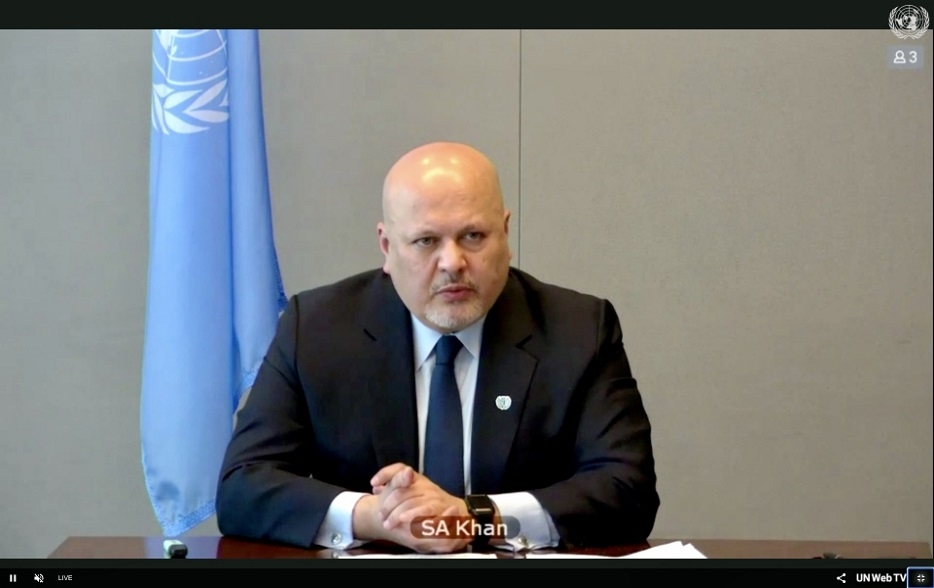Special Adviser Khan Briefs the Security Council on UNITAD Investigations
Special Adviser Khan Briefs Security Council on UNITAD Investigations:
Evidence shows that ISIL attacks against the Yazidi community in Sinjar constitute genocide. Finding that ISIL committed war crimes and incited genocide against Shia Muslim
New York, 10 May 2021 – Special Adviser Karim Asad Ahmad Khan QC today provided his final briefing to the Security Council, presenting the findings of his sixth Report on the work of the United Nations Investigative Team to promote accountability for crimes committed by Da’esh / ISIL (UNITAD).
Special Adviser Khan announced that through its independent criminal investigations UNITAD had established “clear and convincing evidence that genocide was committed by ISIL against the Yazidi as a religious group”. Evidence collected by the Team had also confirmed ISIL was responsible for acts of extermination, murder, rape, torture, enslavement, persecution and other war crimes and crimes against humanity perpetrated against the Yazidis.
With respect to its investigations into mass executions of predominantly Shia unarmed air cadets and personnel from Tikrit Air Academy, also known as Camp Speicher, Special Adviser Khan confirmed to the Council that “the Team has identified video evidence substantiating the crime of direct and public incitement to commit genocide against Shia Muslims. The narration on videos glorifying the horrifying images of these mass executions contains a repeated and clear exhortation to ISIL followers: “Kill them wherever you find them”. The Special Adviser also informed the Council that, based on evidence collected, the Team had concluded that these attacks constitute the war crimes of murder, torture, cruel treatment and outrages upon personal dignity.
A new line of investigation into the development and deployment of chemical weapons by ISIL in Iraq had moved forward rapidly. Evidence collected has confirmed the implementation of a chemical weapons programme centred at laboratories in Mosul University controlled by ISIL in 2014. This had initially led to the weaponizing of chlorine from water treatment plants and subsequently the development of toxic lethal compounds including thallium and nicotine that were tested on live prisoners, leading to death. In 2016, a sulfur mustard production system was deployed by ISIL through the firing of 40 rockets at the Turkmen Shia town of Taza Khurmatu.
Special Adviser Khan underlined that the rapid expansion of UNITAD evidence holdings, combined with the use of advanced technology including artificial intelligence tools to analyse information collected, had allowed for significant progress in the implementation of the mandate of the Team. Exploitation of ISIL laptops and mobile phones had allowed for extensive analysis of internal ISIL administration documents, allowing the Team to compile timelines of activity in relation to key persons of interest.
Looking ahead, Special Adviser Khan noted that the progress made in the work of the Team to date had set a path for the prosecution of ISIL members for international crimes in Iraq, highlighting that his Report laid out a timeframe that would allow for trials against ISIL members to commence next year.
The Special Adviser concluded by thanking the Security Council and the Government of Iraq for their continued support in the implementation of the mandate of the Team.
*****************************************************
For More Information please contact: Mr. Georges Fakhry, Chief Public Information Officer for the
United Nations Investigative Team to Promote Accountability for Crimes Committed by Da’esh/ISIL,
Phone: +9647833068026, E-mail: georges.fakhry@un.org, or the UNITAD Public Information Office: E-mail: UNITAD-PIO@un.org


